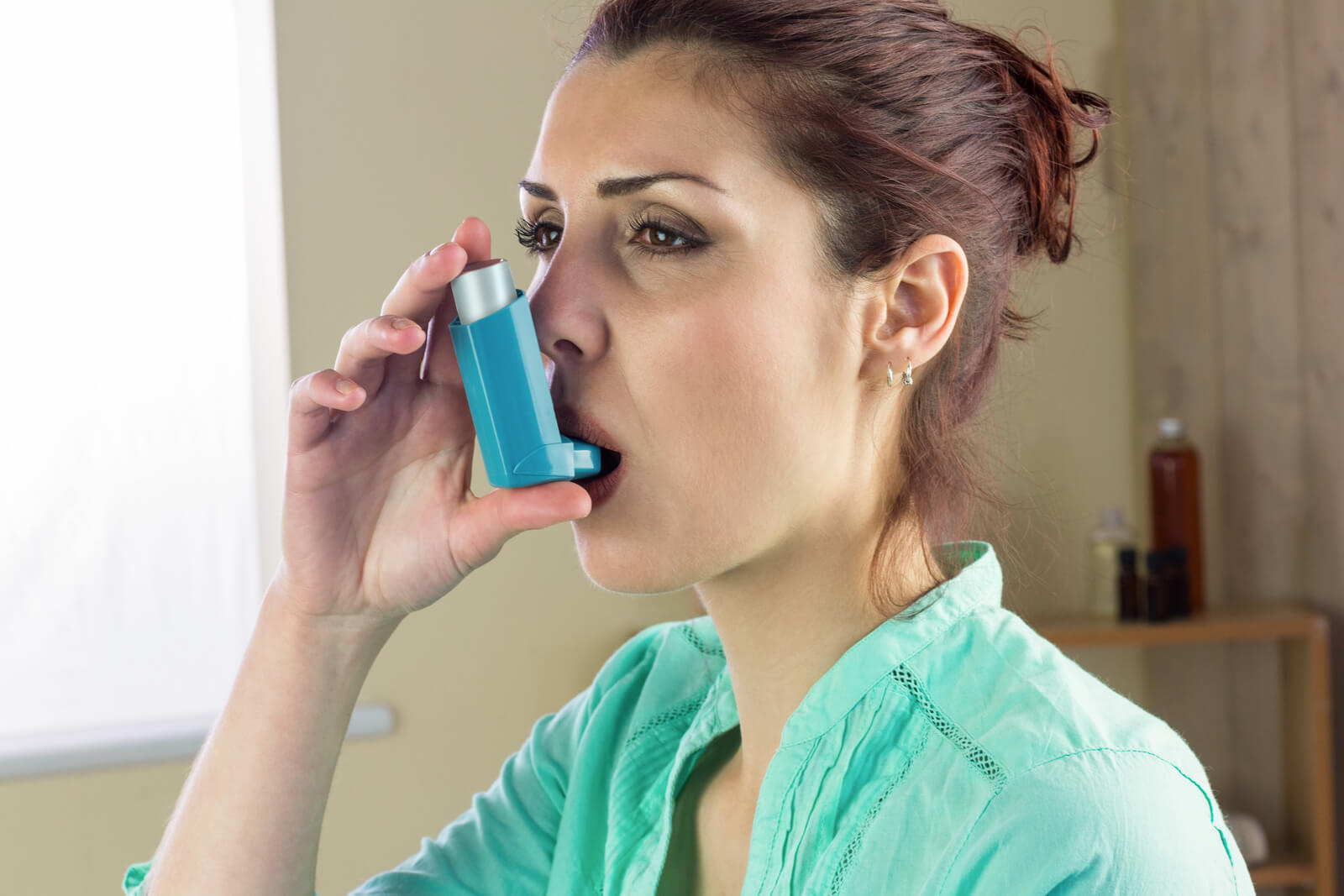FTC disclaimer: This post may contains affiliate links and we will be compensated if you click on a link and make a purchase.
Are there any long-term medications available for Asthma? Is there anything quick relief that you could take when you need it?
There are two types of treatments for Asthma: short-term and long-term. Short-term treatment includes inhalers and rescue medication.
Long-term treatment includes inhaled corticosteroids. These drugs work by reducing inflammation in the lungs. They may help prevent future attacks.
Understanding How Asthma is Treated
Asthma treatment varies from one patient to the next as it depends on identifying the asthma triggers and adopting necessary precautionary measures to avoid them. The doctor also needs to know how severe the condition is in an asthma patient.
Asthma treatment involves administering quick-relief drugs and long-term drugs to asthma patients. Depending on age, gender, environmental factors, heredity, medical history, and type of Asthma, asthma treatment differs for every patient.
What are Long-term and Quick Relief medicines?
Long-term medicines are to be taken regularly to prevent an asthma attack. One should remember that asthma treatment cannot cure the disease but can only help asthma patients in controlling the disease.
The quick-relief drugs provide instant relief whenever a patient suffers from an asthma attack. Most asthma drugs are administered through inhalers. Some of these drugs are taken orally.
Understanding Long-term and Quick-relief Drugs

Long-term Medication
There are many different types of long-term control medications. Some are taken by mouth, while others are inhaled.
Inhaled Corticosteroid (fluticasone, budesonide, mometasone)
The most common type of long-term control medication is an inhaled corticosteroid. These medications help reduce inflammation in the airways, making breathing easier.
Inhaled corticosteroids are the most effective long-term control medication for most people with Asthma.
They are safe to use and have few side effects. However, some people may need more inhaled corticosteroids to control their Asthma.
The most common side effect of inhaled corticosteroids is thrush, a yeast infection in the mouth or throat. This can usually be avoided by rinsing the mouth with water after inhaling.
Other potential side effects include hoarseness, sore throat, and coughing. More serious side effects, such as adrenal gland suppression or bone loss, may occur in rare cases.
Long-acting beta-agonists (salmeterol, formoterol)
Long-acting beta-agonists medications are inhaled and help to open up the airways. These medications are combined with inhaled corticosteroids to provide additional symptom relief. Long-acting beta-agonists are taken daily and come in both inhalers and pill forms.
The most common side effect of LABAs (Long-acting beta-agonists) is an increased heart rate. This can be a problem for people with heart conditions or taking other medications that can affect the heart.
LABAs can also cause anxiety, tremors, and headaches. In rare cases, LABAs can cause more serious side effects like chest pain or an irregular heartbeat.
Leukotriene modifiers (montelukast, zafirlukast)
Leukotriene Modifiers medications prevent leukotrienes, chemicals that can trigger asthma symptoms. These medications are taken by mouth and help to reduce inflammation.
Leukotriene modifiers can cause side effects such as headaches, nausea, and vomiting. In some people, they may also cause dizziness, fatigue, and diarrhea.
In rare cases, they may cause serious side effects such as liver damage or blood disorders. Call your doctor immediately if you experience any of these side effects.
Theophylline
Theophylline medication is used to relax the muscles around the airways and to open up the airways. Theophylline is available in both oral and inhaled formulations.
Theophylline medication is taken by mouth and helps open the airways and reduce inflammation.
The most common side effect of theophylline is nausea. Other side effects include vomiting, diarrhea, headache, dizziness, and trouble sleeping.
Some of these side effects can be serious and even life-threatening. You should contact your doctor immediately if you experience any of these side effects while taking theophylline.
In rare cases, theophylline can also cause seizures or heart problems. If you have a history of seizures or heart disease, you should talk to your doctor before taking this medication.
Steroids
Steroids are a common medication used to treat Asthma. They help to reduce inflammation throughout the body.
They can be taken by mouth, inhaled, or injected. While they are generally safe and effective, there are some potential side effects.
The most common side effect of steroids is weight gain. Other potential side effects include mood swings, increased appetite, and trouble sleeping. In rare cases, steroids can cause more serious side effects like high blood pressure and osteoporosis.
It is important to take your long-term control medications exactly as your doctor prescribes. You should not skip doses or stop taking the medication without talking to your doctor first.
Talk to your doctor if you have trouble taking your long-term control medication. They may be able to prescribe a different medication or change the dose of medicine.
Quick-Relief Medication
In addition to long-term control medications, you may also need quick medication to relieve symptoms during an asthma attack. Quick medication is typically taken through an inhaler.
Short-acting beta-agonists
Short-acting beta-agonists are the most common quick-relief medication for Asthma. These medications open the airways and make it easier to breathe. They work by relaxing the muscles around the airways, which allows air to flow more easily.
- Albuterol (Proventil, Ventolin)
- Levalbuterol (Xopenex)
The most common quick-relief medication is albuterol.
Albuterol works by relaxing the muscles around the airways, making it easier to breathe. It usually starts working within minutes and lasts for four to six hours.
If you have a severe asthma attack, you may need to take a higher dose of albuterol or use a nebulizer. A nebulizer is a machine that turns liquid medication into a fine mist that you can inhale.
However, SABAs can also have some unwanted side effects, including:
- Increased heart rate
- Tremors or shaking
- Nervousness or anxiety
- Headache
- Dizziness or lightheadedness
While these side effects are generally mild and temporary, they can be more severe in some people. If you experience any of these side effects after taking a SABA, please get in touch with your doctor or healthcare provider.
Anticholinergics
Anticholinergics work by relaxing the muscles in the airways, making it easier to breathe. These medications are typically used as rescue inhalers and are taken when asthma symptoms start.
However, like all medications, anticholinergics can have side effects. Some of the most common side effects of anticholinergics include the following:
A dry mouth is one of anticholinergics’ most common side effects and can be very uncomfortable. A dry mouth can lead to difficulty swallowing, increased risk of cavities, and bad breath.
Many people who take anticholinergics feel drowsy or sleepy. This can make it difficult to concentrate and dangerous to drive or operate machinery.
Oral corticosteroids
Some people with Asthma may also need to take oral corticosteroids. These are taken by mouth and help to reduce inflammation throughout the body.
Oral corticosteroids can be taken for a short period of time to control an asthma attack. They are not meant for long-term use.
If you have Asthma, it is important to work with your doctor to create a treatment plan. This plan should include both long-term control and quick-relief medications. You should also have a plan for what to do in case of an asthma attack.
Always keep your asthma medication with you in case of an asthma attack. You may also want to wear a medical alert bracelet or necklace that says you have Asthma. This can be helpful if you have an asthma attack and cannot speak.
Avoid Asthma Triggers
If you have Asthma, it is important to avoid triggers that can worsen your Asthma. Some common triggers include:
- Cigarette smoke
- Dust
- Mold
- Pollen
- Pet dander
- Exercise
- Cold air
- Air pollution
If you have Asthma, you should also avoid getting sick. This can trigger an asthma attack. Be sure to wash your hands often and get a flu shot yearly.
Taking your asthma medication as prescribed by your doctor is also important. You should not skip doses or stop taking your medication without talking to your doctor first.
If you have Asthma, it is important to see your doctor regularly. This will help your doctor monitor your Asthma and ensure that your medication works properly.
Alternative treatment for Asthma
Apart from the above-mentioned allopathic medicines, homeopathy is extremely effective in controlling Asthma in adults and children. Homeopathic medicines are useful in long-term asthma management and are known to have minimum side effects.
Ayurveda also offers several remedies for the treatment and management of Asthma. Some common ayurvedic medicines used to treat Asthma include–Swaskuthar ras, Sitopaladi Choorna, and Vasavleha. Asthma patients are also advised to try the following home remedies of Ayurveda.
Asthma patients should add 10-15 drops of garlic juice to warm water and drink it daily. They must prepare the following mixture and consume it daily: ¼ cup of onion juice + 1 tablespoon of honey + ¼ tablespoon of black pepper powder.
These home remedies are beneficial in controlling Asthma.
Conclusion
Two types of drugs are used to treat Asthma: long-term and quick relief. Long-term drugs are taken daily to prevent asthma attacks, while quick-relief drugs are used to relieve symptoms during an asthma attack.
If you have Asthma, it is important to work with your doctor to create a treatment plan that is right for you.








